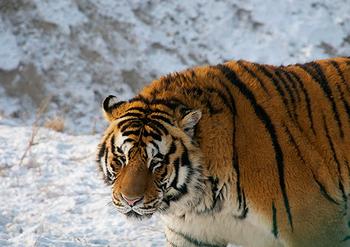
WASHINGTON, DC, February 6, 2019 (ENS) – A group of 13 conservation organizations with a combined presence on all eight continents have issued a joint statement, calling upon global decision makers to safeguard the Earth’s remaining wild places.
The joint statement asks nations to increase international protected area targets, with the goal of protecting at least 30 percent of the planet by 2030.

The groups believe that their mission can be accomplished by setting ambitious goals for the protection of the planet’s lands and oceans.
This effort to increase international conservation ambition includes a partnership with the National Geographic Society to raise public awareness about the global conservation crisis and to inspire citizens, policy makers, and other philanthropic organizations to accelerate the protection of the planet.
“We are proud to join forces with the Wyss Foundation on this bold effort to accelerate the protection of Earth’s lands, waters, and wildlife,” said Tracy Wolstencroft, president and CEO of the National Geographic Society, one of the 13 groups. “As the world looks to 2020 when key decision-makers will meet in China to agree on new targets for global conservation of nature, this important campaign could not have come at a more critical time.”
The situation is dire and growing worse by the day. Nearly two-thirds of the Earth’s wetlands and half of all rainforests are already gone.
The current rate of global species loss is estimated to be up to 1,000 times higher than the naturally occurring extinction rate, and it is expected to rise. The planet has lost 60 percent of its wildlife since 1970, and today more than 26,500 wildlife and plant species are at risk of extinction, according to the International Union for the Conservation of Nature, IUCN.
The call from the conservation groups comes as negotiators are meeting in Japan to begin developing a plan to safeguard biodiversity, which will be finalized next year when the Conference of Parties to the Convention on Biological Diversity meets in Beijing.
The Wyss Campaign for Nature, a $1 billion investment to scale global conservation ambitions and protect at least 30 percent of the planet by 2030, is organizing this effort.
Hansjörg Wyss, a Swiss native who now lives in Wyoming, created the private philanthropic Wyss Foundation in 1998 after a successful career in life-saving medical science. “Each investment we make in conservation is an enduring investment in democracy,” he said.

Senior Fellow and Communications Director of the Wyss Campaign, Greg Zimmerman, said, “The planet is losing wildlife and wild places at an unprecedented rate. Over the next two years, world leaders have an opportunity to chart a new path for our Earth’s remaining wild places by committing to protecting 30 percent of our planet by 2030 and dedicating sufficient funding to effectively manage protected areas.”
“Developing this new, more ambitious plan to protect biodiversity is essential to the health and well-being of every person on every continent,” he said. “The negotiations this week in Japan offer an opportunity for nations to get off to a fast start toward a bold new global agreement in 2020.”
The New Deal for Nature and People, to be signed at the 15th Conference of the Parties to the Convention on Biological Diversity in Beijing in 2020 as a UN-wide framework for nature, represents “our last hope to ensure the long-term sustainability of Earth’s ecosystems on which human life depends,” the 13 groups said in their joint statement.
The Deal must integrate seamlessly with the Sustainable Development Goals and the Paris Agreement. Using 2018 as a baseline year, it must prevent extinctions, reverse the decline of species populations; stabilize or increase natural ecosystems and habitats and their services, while restoring degraded lands.

“To meet this vision, the entire planet must be managed sustainably, supported by truly sustainable production and consumption, a circular economy, and the sustainable and equitable sharing of benefits from nature,” the groups said.
“The 2030 framework should include an apex target that is clear and communicable,” said the groups.
The framework should have the following four key elements:
• Extinction: the extinction of species has been prevented;
• Abundance: species populations are recovering;
• Ecosystems and their services: the extent and quality of ecosystems and their services are stabilized or increasing with 2018 as a baseline year;
• Restoration: degraded ecosystems are restored to maintain ecological function and the provisioning of ecosystem services.
In their statement, the groups said, “These milestones require that development and management be made sustainable across the entire planet, that sufficient public and private finance is redirected and mobilized and that nature’s contribution to climate mitigation and adaptation be maximized.”
Wyss said, “From the forests that supply our drinking water to the rugged backcountry that inspires the imagination of our children, everyone on Earth has a stake in conserving our planet’s wild places before they are gone.”
The 13 groups that issued this call to action are:
BirdLife International
Conservation International
Fauna & Flora International
Global Wildlife Conservation
Nature Conservancy
Natural Resources Defense Council
Panthera
National Geographic
United Nations Foundation
Wildlife Conservatioin Society
WWF
Wyss Campaign for Nature
Zoological Society of London
Copyright Environment News Service (ENS) 2019. All rights reserved.
